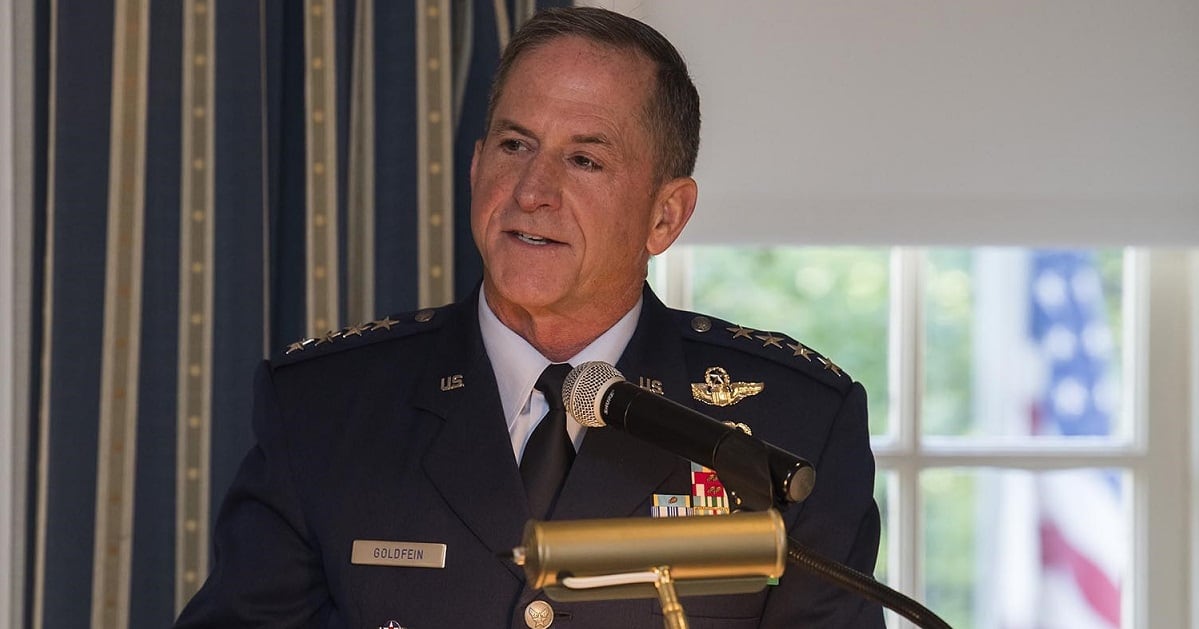As a four-star general weeks away from retirement, Larry Spencer pulled into one of two general officer parking spaces in front of the gym at Bolling Air Force Base in Washington, D.C. As he stepped out of the car in his workout clothes, a man jumped out of his car nearby and ran to him. “He chewed me up one side and down the other because I would dare park in a general officer’s spot,” Spencer said.
“That wasn’t the first time this had happened. So at the end of his little soliloquy, I looked him in the eye …. and said to him, ‘What makes you think I’m not a general officer?’ " said Spencer, who was the former vice chief of staff of the Air Force before he retired in 2015.
“The ironic thing was, that gentleman was African American. We all have been conditioned with these biases that we need to understand and we need to embrace. Here was an African American who could not see someone who looked like him as a general officer.”
Spencer spoke during the virtual launch of Blue Star Families’ Racial Equity Initiative Wednesday, aimed at improving the service experience of military families of color. He’s a member of the organization’s Racial Equity Committee, which includes high-ranking military leaders from all branches, wounded warriors, caregivers, and military spouses. Spencer said he’s been curious about the silence of military families about their experiences, whether it’s racial inequality or other issues that affect the community at large. And he’s encouraged that Blue Star Families “has stepped forward to take on that challenge.”
The $1 million initiative will include initial steps such as research, a leadership training program to create a pipeline for the next generation of diverse leaders who want to work with private organizations supporting military families. The leadership teams of military service organizations and veteran service organizations are disproportionately populated by white people, not reflecting the diverse military family population, according to Blue Star Families.
The committee has met regularly since summer, convened by Blue Star Families CEO Kathy Roth-Douquet, following the murder of George Floyd, to start delving into the experiences of military families of color.
RELATED

A review of current research on military families of color indicates that before COVID, 7 out of 10 Black and Hispanic/Latino military families experienced stress due to their current financial situation. In addition, 50 percent of Black and 40 percent of Hispanic/Latino military families reported that unemployment and underemployment is a top three contributor to financial stress. These findings were extracted from the 2019 Blue Star Families Military Family Lifestyle Survey.
Studies conducted during the pandemic by Blue Star Families and The Institute for Veterans and Military Families (IVMF) at Syracuse University indicated that Black active-duty families reported more difficulty staying informed, and were less able to find information for resources.
What drives Roth-Douquet’s work with this initiative is “to make sure that military families of color don’t feel isolated,” and feel included in their community, said retired Army Lt. Gen. Gwen Bingham, former Army staff principal for installation management, and co-chair of the committee. With frequent moves, and 70 percent of soldiers living outside the gate, it’s important for all military families to feel connected and included. If that foundation is not there, people miss out on important information about resources available to help them.
“We need to make people of color feel included,” Bingham said, in an interview with Military Times.
“We as a nation and a world have to grapple with the fact that racism exists…. We need to do better by our people of color to make them feel they’re welcome, included, and have a connection with the community.”
Bingham said she believes the Blue Star initiative “has the capability of becoming a model program.
“This will help the racial divide, and bring awareness to the talent inside the military families of color.”
The perspectives and guidance of the Racial Equity Committee have shaped the initial steps of the initiative. Work will include conducting focus groups in 2021, looking at previous research and launching new surveys and research, to help form recommendations to improve the experiences of military families of color.
One of the first steps is creating a leadership pipeline of training to bring more people of color into military service organizations and veteran service organizations. The leadership teams of the organizations that serve military families are disproportionately white, said Ingrid Herrera-Yee, co-chair of the committee, a military spouse, and suicide prevention expert.
“The more we see of ourselves in leadership, the more comfort there is, and the more you feel like you belong,” Herrera-Yee said.
This effort will help ensure the support system reflects the diversity of military families.
That pipeline, dubbed the “DEPLOY MC” — Diversify and Expand the Pipeline of Leaders for Your Military Community — entails a fellowship program.
Blue Star Families is looking for military spouses, veterans and adult children of veterans who may be interested in these fellowships, said Roth-Douquet. Right now there are seven fellowships funded for various areas around the country. DEPLOY Fellowship interest forms are accepted through Dec. 31; the application period is from Jan. 2 to Jan. 31; and the full-time fellowship terms run from April 1, 2021 through March 31, 2022.
Fellows will serve for one year in chapter-based or national roles for the Blue Star Families organization. These are full-time paid fellowships where they’ll receive training in military service organization or veteran service organization leadership.
Once they graduate from the fellowship program, there’s the potential for employment with Blue Star Families or other service organizations.
Karen has covered military families, quality of life and consumer issues for Military Times for more than 30 years, and is co-author of a chapter on media coverage of military families in the book "A Battle Plan for Supporting Military Families." She previously worked for newspapers in Guam, Norfolk, Jacksonville, Fla., and Athens, Ga.




